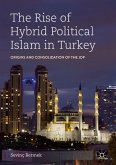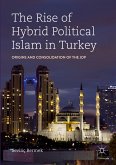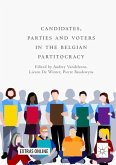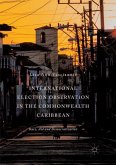This book studies how established political parties react to the far left and far right parties that have surged in many democracies worldwide. While some of the extremist parties are being imitated in response, established parties can also choose to systematically rule out all political cooperation with them, imposing a cordon sanitaire. A third response by established parties combines these two reactions. How common are these three responses, and how do they affect far left and far right parties' electoral support? This book addresses these questions by analyzing experimental and non-experimental data from fifteen European countries since 1944. In doing so, it informs scientific and public debates about challenges to established parties, how these parties deal with these challenges, and what the consequences are for the quality of democracy in contemporary democratic societies.
Bitte wählen Sie Ihr Anliegen aus.
Rechnungen
Retourenschein anfordern
Bestellstatus
Storno








